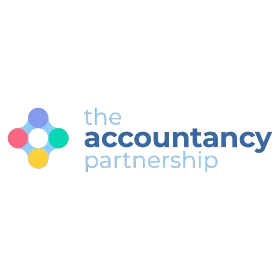As you’ll be more than aware as a business owner, each year, your business has to share its accounts with the Companies House.
Although there’s no way to get out of this process as a limited company, there are ways to submit shorter versions of accounts to make this process easier if you’re a small company.
These shorter accounts are called abridged accounts, and in this guide, we’ll explain what abridged accounts are, who can file for them, and what they look like.
Abridged accounts explained
Firstly: what are abridged accounts?
Abridged accounts are a set of accounts that you submit to Companies House, but are less detailed than the full year-end accounts that you would be expecting to complete.
Rather than completing the full balance sheet, profit and loss account, notes, and directors’ reports, businesses will only have to fill in a simpler balance sheet and notes.
For the balance sheet, you don’t have to include a breakdown of any fixed assets, creditors, and debtors.
In addition, you don’t have to disclose your net profit, as your profit and loss account will start from your gross profit instead. This might sound a little complicated right now, but we’ll take a look at a working example later on.
The most important information to take away here to understand “what are abridged accounts” is that they are simpler, easier ways of filing your accounts that include less information. However, this option isn’t available to every business – just those that qualify as small businesses under the guidelines.
Recommended – Top-Rated Online Accountant:
Abridged accounts example
As we mentioned before, abridged accounts include a simpler balance sheet and any related notes. Optionally, you can also include a simpler profit and loss account, as well as a directors report, or choose to fillet this information.
In addition, you will also need to include a statement at the beginning of your accounts to explain that you are submitting abridged (or filleted!) accounts, with a confirmation that all your stakeholders have agreed to this decision.
So what do these accounts look like? Here’s an example of what information you would need to include:
| Fixed assets | |
| Tangible assets | £145,340 |
| Current Assets | |
| Stocks | £5,870 |
| Debtors | £78,950 |
| Cash at bank and in hand | £650 |
| Total current assets | £85,470 |
| Creditors: amounts falling due within one year | £54,870 |
| Net current assets/(liabilities) | £24,540 |
| Total assets less current liabilities | £180,670 |
| Creditors: amounts falling due after more than one year | £40,678 |
| Provision for liabilities | £3,500 |
| Net assets | £198,450 |
| Capital and reserves | |
| Called up share capital | £2,500 |
| Share premium | £9,500 |
| Profit and loss account | £195,430 |
| Shareholders’ funds | £198,540 |
This will need to be accompanied by a director’s name and signature, but as you can see from this example, you don’t need to include detailed breakdowns of your assets, debtors, or creditors.
In addition, you don’t need to disclose your corporation tax figure or your net profit, and competitors won’t be able to calculate what it is from this shortened information sheet.
Top 3 reasons for small businesses to submit abridged accounts
If you qualify as a small business, the decision to submit abridged accounts is entirely yours. To help you decide if it’s right for your business or not, we’ve put together the top 5 reasons why you might choose to abridge your accounts.
1. Abridged accounts are easier
You’re submitting less detailed financial information for abridged accounts, which make them a lot easier and simpler to prepare. That means less time, less stress and less room for error.
2. Less information is made public
Abridged accounts disclose less financial information to the public – which can be a benefit for companies that want to protect sensitive financial data from competitors or potential business partners.
Just be aware that this point works two ways. Less publicly available information make it difficult for potential investors, lenders, and business partners to assess your company’s financial health and performance. If you’re looking to get new investors or partners, you might want to submit the full version of your accounts instead.
3. It saves you time and money
Preparing your full accounts takes a lot of time and energy. By submitting a smaller abridged version, you save the time and resources that can be used to run your business.
Abridged accounts can also help save you money, as they are much more achievable without using an accountant. Some software will also have programs to help you prepare these accounts, including our top-rated software FreeAgent. Find out more about this service here.
However, if you want to use an accountant, the reduced workload by preparing abridged accounts should help cut money off your bill. That’s always a welcome surprise.
Which Accounting Software Is Right For You?
Answer 5 multiple choice questions to get a personal recommendation:
Abridged accounts vs filleted accounts
This is where things get a little more interesting. As a small business, you can choose to submit abridged accounts, which are shortened and simpler versions of accounts. However, there is also another option that is available to businesses, which is filleted accounts.
This is also a simpler version of accounts, where you can choose not to send a profit & loss account and/or directors report so this information is not made available to the public.
Basically:
- Abridged accounts are a way of preparing smaller, simpler accounts. These will need to be shared with your directors, regardless of what you submit to the Companies House.
- Filleted accounts are a way of choosing not to submit certain information to the Companies House, so it doesn’t get added to public records. You can do this whether you prepare abridged or full accounts.
For both of these options, your business must qualify as a small business under the guidelines – and you must get permission from your shareholders to submit accounts this way.
Abridged accounts vs micro-entity accounts
There is another level to abridged accounts that you could potentially qualify for. These are called micro-entity accounts, where you can submit even simpler forms of accounts for Companies House. Your business qualifies as a micro-entity account if you hit at least two of the following criteria:
- Your turnover is less than £632,000
- Your balance sheet total is less than £316,000
- You have 10 employees or less
If you qualify for micro-entity accounts, you can decide to prepare the micro-entity version, the small company abridged version, or the full accounts, as long as your directors agree. To find out more about micro-entity accounts, read our full guide to them here.
Lost the buzz for your business?
Starting a business is exciting. Succeeding is rewarding. The bit between is hard, repetitive, and full of self-doubt.
The Lonely Middle Club (From Business4Beginners) helps you through it:
Get support and advice from other small business owners
Remove the self-doubt that’s holding your business back
Learn techniques and strategies to grow your business faster
Be inspired with our exclusive ‘swipe’ file and AI-powered tools
No pressure – work at YOUR pace, towards YOUR goals
—
The choice to abridge your accounts is yours
If you choose to submit filleted accounts (whether you prepare abridged versions or not), you protect certain information from public view. This can be useful for businesses that are starting out to make sure that competitors can’t easily access information about your business.
However, this also comes with a downside if you’re looking for angel investment or venture capital funding, as these parties will also block this information. With less information about your business, they might choose not to invest – or even slow the entire process down as they manually request the information from you.
Need help with your accounts?
EXCLUSIVE OFFERS – Save On Your Accountancy Costs
Now that you are fully aware of what are abridged accounts, as a small business, you can choose to submit:
- Full accounts, which show all disclosures and have a breakdown of balance sheet items;
- Abridged accounts, which have fewer disclosures and include a simpler balance sheet without breakdowns of items;
- Filleted accounts, in which you remove the profit and loss account information and/or the director’s report.
This can be a bit of a minefield to work out which path to choose from, but luckily there is plenty of accounting software that can make the entire process much quicker and simpler with templates that auto-create these accounts for you.
Our top pick is accountancy software FreeAgent (awarded a 9.4 Business4Beginners rating!) which can help you create abridged accounts in no time and automatically file them to Companies House. Find out more about this service here.
For any other business advice or tips, including how to keep your books like a pro, we’ve got you covered at Business4Beginners.









